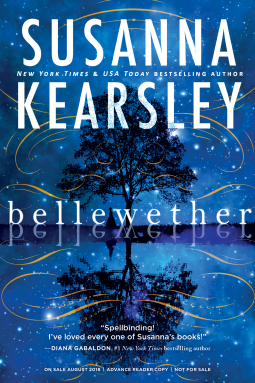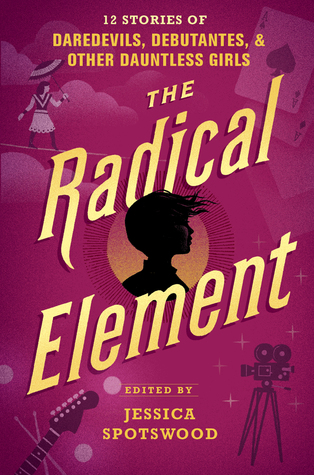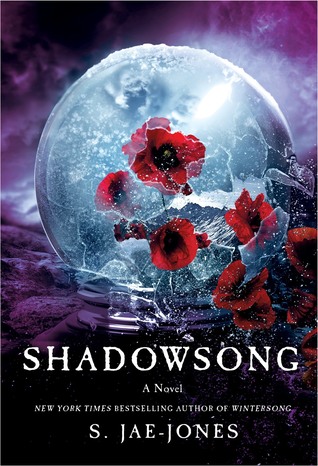You probably know by now how much I adore history, considering I used to be a history major and find any excuse I can get to watch period dramas or read historical fiction (by a big plot twist, I even miss historical research a lot these days). So of course, I always browse the historical fiction section of Netgalley and that's how I stumbled upon The Familiars, which I added on Goodreads really quickly: I mean, 17th century England and witch trials? I'll read that, thank you very much. I got really excited when I was approved to read an e-ARC of it and as it's releasing today, it's time I talk about it some more!
Published on: February 19th 2019 by MIRA
Genres: historical fiction, paranormal
Number of pages: 352
Goodreads summary: Young Fleetwood Shuttleworth, a noblewoman, is with child again. None of her previous pregnancies have borne fruit, and her husband, Richard, is anxious for an heir. Then Fleetwood discovers a hidden doctor’s letter that carries a dire prediction: she will not survive another birth. By chance she meets a midwife named Alice Grey, who promises to help her deliver a healthy baby. But Alice soon stands accused of witchcraft.
Is there more to Alice than meets the eye? Fleetwood must risk everything to prove her innocence. As the two women’s lives become intertwined, the Witch Trials of 1612 loom. Time is running out; both their lives are at stake. Only they know the truth. Only they can save each other.
Rich and compelling, set against the frenzy of the real Pendle Hill Witch Trials, this novel explores the rights of 17th-century women and raises the question: Was witch-hunting really women-hunting? Fleetwood Shuttleworth, Alice Grey and the other characters are actual historical figures. King James I was obsessed with asserting power over the lawless countryside (even woodland creatures, or “familiars,” were suspected of dark magic) by capturing “witches”—in reality mostly poor and illiterate women.
MY THOUGHTS
Disclaimer : I received this book through Netgalley in exchange for an honest review. All opinions are my own. All quotes I used in this review might have been changed in the final copy.
"She certainly looks like a witch. She is very thin and rough-looking, with black hair and a sullen face. My mother says never trust someone with black hair because they usually have a black soul to match."
"I have black hair." (p. 26)
I have to admit that going into this, I didn't know much about the Pendle Hill Witch Trials, I only knew Pendle because of Joseph Delaney's Wardstone Chronicles (he got inspired from history so much for his Pendle, and my favourite book of the series is the fourth one, set there, what a surprise). Reading about those events was both frightening and fascinating, because of the awful fate these women were to know and it became even scarier when I read the author's note and that Stacey Halls explained that all her characters had actually existed. In any case, I felt like I was in early 17th century Lancashire, Stacey Halls did a great job at recreating its atmosphere.
The names of the Lancashire Witches
Moreover, as said in the summary, The Familiars explored the rights of women in different ways, from gentry-born women to the poorer ones, who didn't have wealth or status to protect them and it was really interesting. It showed how little choice, on their different scales, women had at that time. For Fleetwood, our gentry-born main character, it was about making a good marriage, then having to produce an heir for her husband, whereas for Alice, it was about keeping a job and surviving, when no one really cared about her: in a way, both only could count on themselves, and later on each other. On another hand, The Familiars explored the way men had power over women, whether it was through their marriages or even when it came to the law: they barely were held accountable for their actions, which the author discussed through the main character's point of view.
"I remembered Alice's words: I am afraid of lies. Now I knew what she meant: lies had the power to destroy lives but also create them." (p. 198)
I adored the main character, Fleetwood, because I could relate to her so much. While she felt helpless, she never gave up and tried to do all she could to stay alive, then to save Alice, when she could have stayed in her comfortable, but imperfect, life. Her friendship with Alice was so heartwarming, because it was portrayed in a healthy way: the both of them had been brought together by Alice's job as a midwife, but came to mean so much more to each other and to always be there for the other.
The Familiars started with exciting chapters before slowing down, then I wondered where the author was going and thought I knew, until it took me by surprise several times, which I loved. It had such a gloomy atmosphere as the story progressed, to the point that I could be as tense as Fleetwood. From the moment this novel first took me by surprise, I couldn't stop reading, because I had to know what would happen next. It might have been a bit slow in the beginning, but it was all worth it as I kept thinking about the story, even when I wasn't reading this novel.
On top of that, I really liked that the author always made me doubt whether the "witches" had magical powers or not. I found the theme of the familiars really interesting, as it had to do with natural magic and the way Fleetwood encountered magic was really well-written, as she was an outside point of view on the topic of magic.
Last but not least, I can't say much because it would be a spoiler, but I adored the very last chapter! I am often disappointed by endings, but it wasn't the case at all here, I thought it was a perfect way to conclude!
Overall, if you love historical fiction and are intrigued by witch trials stories, I would totally recommend you this one! It portrayed a friendship between two women from different parts of society in a healthy way, had a gloomy atmosphere like I love and discussed the rights of women at the time. It was Stacey Halls' debut, so I'll be sure to keep an eye out for more of her works, because this one sure was amazing.





















